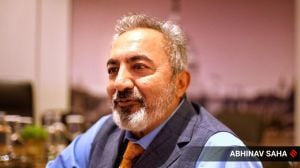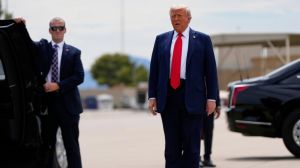Ayub men misled Pak with big ’65 lie: ex-PAF chief
Air Marshal (retired) Nur Khan had all but resigned the post the very day that he took command of Pakistan Air Force on July 23, 1965.‘...

Air Marshal (retired) Nur Khan had all but resigned the post the very day that he took command of Pakistan Air Force on July 23, 1965.
‘‘Rumours about an impending operation were rife but the army had not shared the plans with other forces,’’ Air Marshal Nur Khan said. Sharing his memoirs with Dawn on the 40th anniversary of 1965 war, Air Marshal Khan said he was the most disturbed man that day, instead of feeling proud.
Air Marshal (retired) Asghar Khan while handing over the command to Nur Khan had not briefed him about any impending war because he was not aware of it himself. So, in order to double check, Nur Khan called on the then Commander-in-Chief, General Musa Khan.
Under his searching questions, Gen Musa wilted and with a sheepish smile admitted that something was afoot. Nur Khan’s immediate reaction was that this would mean war. But, Gen Musa said you need not worry as according to him Indians would not retaliate. Then he directed a still highly skeptical Nur Khan to Lt-Gen Akhtar Hasan Malik, GOC Kashmir, the man in-charge of ‘Operation Gibraltar’ for further details.
The long and short of his discussion with Gen Malik was, ‘‘don’t worry, because the plan to send in some 800,000 infiltrators inside the occupied territory to throw out the Indian troops with the help of the local population’’, was so designed that the Indians would not be able retaliate and therefore the airforce need not get into war-time mode.
A still incredulous Nur Khan was shocked when on further inquiry he found that except for a small coterie of top generals, very few in the armed forces knew about ‘Operation Gibraltar’. He asked himself how good, intelligent and professional people like Musa and Malik could be so naive, so irresponsible.
For the air marshal, it was unbelievable. Even the then Lahore garrison commander had not been taken into confidence. And Governor of West Pakistan, Malik Amir Mohammad Khan of Kalabagh did not know what was afoot and had gone to Murree for vacations.
It was at this point that he felt like resigning and going home. But then he thought such a rash move would further undermine the country’s interests and, therefore, kept his cool and went about counting his chickens—the entire airforce was too young and too inexperienced to be called anything else then—and gearing up his service for the D-day.
The miracle that the PAF achieved on September 6, to a large extent, is attributed to Nur Khan’s leadership. He led his force from up front and set personal example by going on some highly risky sorties himself. But then no commander, no matter how daring and how professional, can win a battle if his troops are not fully geared to face such challenges and that too within 43 days of change in command.
‘‘The performance of the Army did not match that of the PAF mainly because the leadership was not as professional. They had planned the ‘Operation Gibraltar’ for self-glory rather than in the national interest. It was a wrong war. And they misled the nation with a big lie that India rather than Pakistan had provoked the war and that we were the victims of Indian aggression’’, Air Marshal Khan said.
When on the second day of war President Gen Ayub wanted to know how we were faring, Musa informed him that the Army had run out of even ammunition. That was the extent of preparation in the Army. And the information had shocked Gen Ayub so much that it could have triggered his heart ailment, which overtook him a couple of years later. This in short is Nur Khan’s version of 1965 war, which he calls an unnecessary war and says that President Ayub for whom he has the greatest regard should have held his senior generals accountable for the debacle and himself resigned. Since the 1965 war was based on a big lie and was presented to the nation a great victory, the Army came to believe its own fiction and has used Ayub as its role model and has continued to fight unwanted wars, the 1971 war and the Kargil fiasco in 1999, he said. In each of the subsequent wars, we have committed the same mistakes that we committed in 1965.
(This is an edited version of a report in Dawn)
Photos





- 01
- 02
- 03
- 04
- 05


























